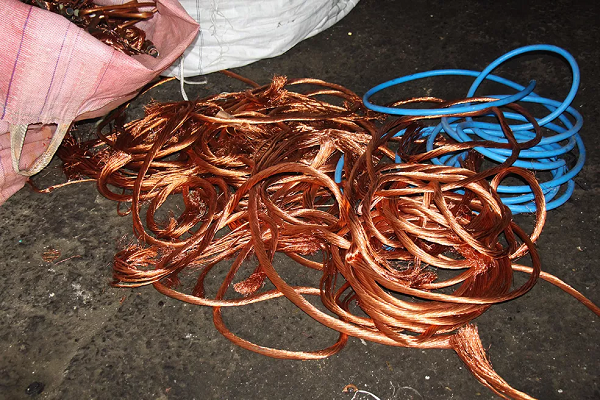On Tuesday (20/06), to prevent robbed or stolen products from being bought in junkyards, the Civil Police Department of Rio de Janeiro has developed the Scrap Online application, which will catalog the products purchased by recycling companies and the like. This is the newest among a series of actions taken by Rio’s authorities to fight robberies and thefts of metallic structures that jeopardizes public and private services in the state.
Criminals Common Targets
The list of products includes copper wires stolen along Rio’s railway network, from traffic lights installed in the city, and from aluminum gates taken from houses and condominiums, manholes and copper statues.
Theft of high voltage cables and wires increased by almost 20% between 2018 and 2022 in Rio, according to Light, the city’s energy distributor company. This type of crime has even damaged power supplies in some areas, affecting more than 30,000 people, who were, on average, 14 hours without power in this period. The most affected neighborhood was Recreio dos Bandeirantes, followed by São Cristóvão and Ramos.
Measures Against Thefts: Law and App
In September 2021, the State Government regulated the law that requires the registration and regulation of junkyards with the Civil Police. Establishments are now required to issue invoices and must also keep records of all commercial operations. The junkyard that fails to comply with the determination is fined, has its registration canceled and the owners can even be prohibited from opening companies for a minimum period of five years.
The app recently released will now join forces with the law to fight crime. The new tool will be used to register data on sellers and merchandise sold and will include information on volume, weight and values.
Recycling establishments and junkyards will have a period of 90 days to present the necessary documentation to the Robbery and Theft Police so that they can enter the system and download the application. After that, the sites will be regularly inspected and monitored by security forces to check the material being purchased by traders.
The government hopes to regulate the profession, as well as combat the illegal trade of products such as cables and wires, which bring damage to public and private institutions alike.
A Global Phenomenon
Criminals have been turning their attention to copper and other metals across the globe driven by its value, particularly due to the metal-hungry Chinese economy. The problem is not only present in Brazil, but in many other countries like Chile, the metal leading producer. On 20 January 2020, over 50 tons of copper cables were seized from a company in Lampa, north of Santiago, with an estimated value of $250 million.
On 11 January 2023, 13 shipping containers with copper were stolen from a storage yard at the port of San Antonio. The cargo was valued at about $4.4 million.
Gaitanistas Attack Mines in Colombia
Being a rich source of minerals, Latin America suffers with criminals that go after many other metals. From 17 to 30 May, the Gaitanistas, one of Colombia’s strongest criminal organizations, carried out attacks on the largest private gold mine in the country, owned by Chinese conglomerate Zijin Continental Gold. In this period, two mine workers were killed and 15 injured. By the time of May’s incidents, the gang had control over 60% of the tunnels, which they block. Two tons of gold have been extracted by the gang.
Experts believe that recent peace talks between the government and the armed guerrillas has given confidence for the groups to act more boldly, understanding that the fragile but important moment would contain state response.
Our Analysis:
Despite the effort from the government, considering the lack of professionals in the security and inspection forces, enforcing the rules will remain hard a task. On top of that, since this is a minor crime, thieves and robbers that end up being arrested are usually released after a custody hearing. Furthermore, many scrapyards are not even regular, and already work illegally – sometimes in areas controlled by gangs –, another factor that reinforces the thesis of lack of work force to inspect and fight the practice. Besides that, Rio is plagued by many serious issues, thus, the government tend to focus on more critical ones.
Source: Isto É; Agência Brasil; G1 [1], [2]; Reuters; Insight Crime [1], [2], [3].




